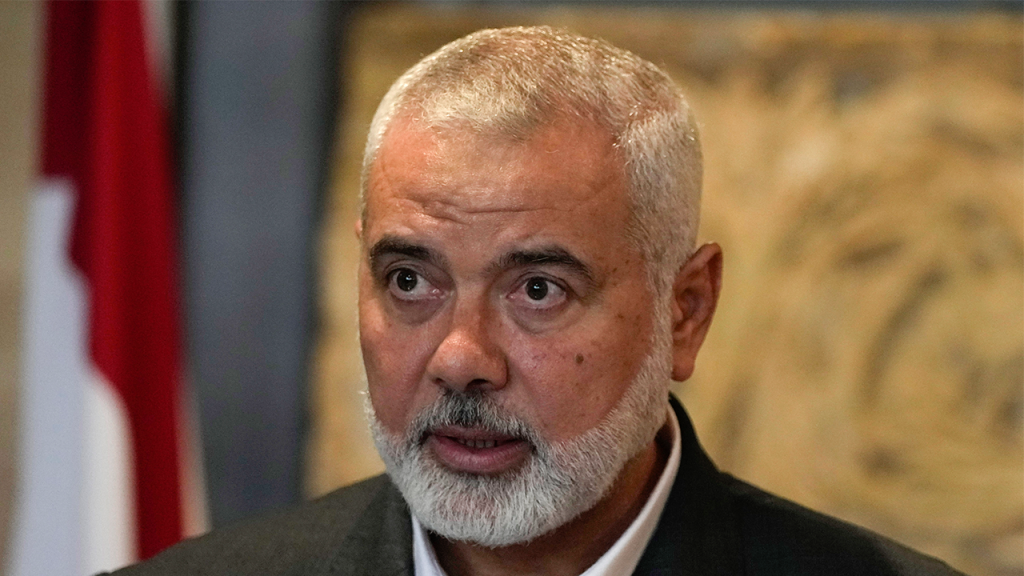Hamas leader Ismail Haniyeh was assassinated in Tehran, Iran by unknown assailants, according to Iran’s paramilitary Revolutionary Guard. Israel was immediately blamed for the attack, with accusations stemming from threats made by the Jewish state following a recent terrorist attack conducted by Hamas. Haniyeh was in Tehran for Iranian President Masoud Pezeshkian’s swearing-in ceremony when he was killed, although details surrounding his death remain vague. Iranian analysts quickly pointed the finger at Israel, a common adversary of both Iran and Hamas. Israel, however, has not released any official statements regarding the incident, with Mossad intelligence agency operations typically being conducted covertly.
The assassination of Ismail Haniyeh has added further tension to the already fraught relations between Israel and Hamas, with the latter being accused of launching a deadly attack on the Jewish state in early October. The attack claimed the lives of 1,200 people and resulted in the abduction of approximately 250 others. In response, Israel vowed to target Haniyeh and other Hamas leaders, making the timing of the assassination particularly sensitive. The lack of an immediate claim of responsibility has created confusion, with no clear motive for the attack emerging at this time. The incident is currently being investigated, and it remains to be seen whether any group or individual will come forward to claim responsibility for Haniyeh’s death.
The involvement of Iran in the assassination of Ismail Haniyeh has raised suspicions about the extent of the country’s support for Hamas and other militant groups in the region. Iran’s paramilitary Revolutionary Guard revealed the news of Haniyeh’s assassination, but little information has been provided regarding the circumstances surrounding the attack. Haniyeh’s presence at Iranian President Masoud Pezeshkian’s swearing-in ceremony adds a political dimension to his assassination, further complicating the already complex relationships between Iran, Israel, and Hamas. The lack of clarity surrounding Haniyeh’s death has left room for speculation and conspiracy theories to flourish, underscoring the need for a thorough investigation to determine the facts of the case.
The swift attribution of blame to Israel for the assassination of Ismail Haniyeh reflects the deep-seated animosity between the two adversaries. While Israel has not issued any public statements regarding the incident, its historical enmity with Hamas and its track record of targeting militant leaders through covert operations have fueled suspicions of its involvement. The timing of the assassination, coming on the heels of Israel’s threats against Hamas leaders, has only heightened speculation about Israel’s potential role in Haniyeh’s death. The lack of a clear motive for the attack, coupled with the absence of a claim of responsibility, has created a vacuum that different parties are seeking to fill with their own narratives and interpretations of events.
The implications of Ismail Haniyeh’s assassination extend beyond the immediate aftermath of the event, with potential ramifications for regional stability and security. The targeted killing of a high-profile Hamas leader in a foreign capital raises questions about the reach and capabilities of the parties involved in the conflict. The lack of transparency surrounding the assassination reinforces the narrative of clandestine operations carried out by intelligence agencies, further complicating efforts to ascertain the truth of what transpired. As tensions escalate between Israel, Iran, and Hamas, the risk of further violence and retribution remains high, underscoring the need for diplomatic efforts to prevent the situation from spiraling out of control.
Overall, the assassination of Ismail Haniyeh in Tehran has added another layer of complexity to the already volatile dynamics between Israel, Iran, and Hamas. The lack of clarity surrounding the circumstances of his death, coupled with the multiple conflicting narratives emerging from different parties, underscores the challenges of navigating a conflict where truth and fiction are often intertwined. As investigations into the assassination continue, the need for dialogue, transparency, and accountability becomes increasingly urgent to prevent further escalation and bloodshed in a region already beset by violence and instability.













